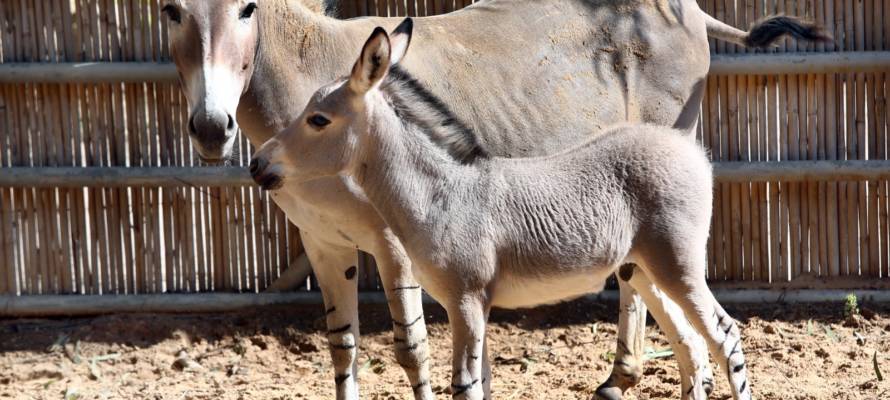Endangered African wild donkey’s birth in Israel is a true “blessing.”
By Pesach Benson, TPS
Around 500 African wild donkeys exist in the world, but an Israeli zoo has become a key player in keeping the species from extinction.
A wild donkey was recently born at the Ramat Gan Safari Park in Tel Aviv, and zoo staff named Broko, which translates to “God’s blessing” in the Amharic language.
The donkeys are native to the Horn of Africa and sometimes have to wander twenty kilometers to reach food and water. Being forced to share scarce water sources with humans and herds of sheep is taking a toll on the species. While hoofed mammals can survive a long time without water, lactating females need to drink water to produce enough milk to nurse their young.
Israel plays a key role in preserving this species.
The entire population of wild African donkeys in zoos today originate from two groups that were captured in Africa in the 1970s. One group of five was sent to a zoo in Basel, Switzerland while a second group of 12 were sent to Israel’s Yotvata Hai-Bar Nature Reserve near Eilat. Breeding programs in the US and Europe used those donkeys and their descendants and the result is now 300 African wild donkeys in zoos around the world.
“The [African wild donkey] is the smallest wild horse,” explained the safari’s zoologist, Keren Or. “It is noticeable in its grayish brown color, its belly is white and its feet are white ‘socks’ with black stripes. Its head has large ears and its eyes are decorated with black eyelashes.”
But despite the look, these special donkeys tend to be overlooked by unsuspecting visitors, Or noted.
“Unfortunately, many people tend to ignore the strays in their big yard at the zoo, say to themselves: ‘Oh, there’s a donkey,’ and move on. Thus they miss one of the most beautiful wild horses, but also the most extinct!”
